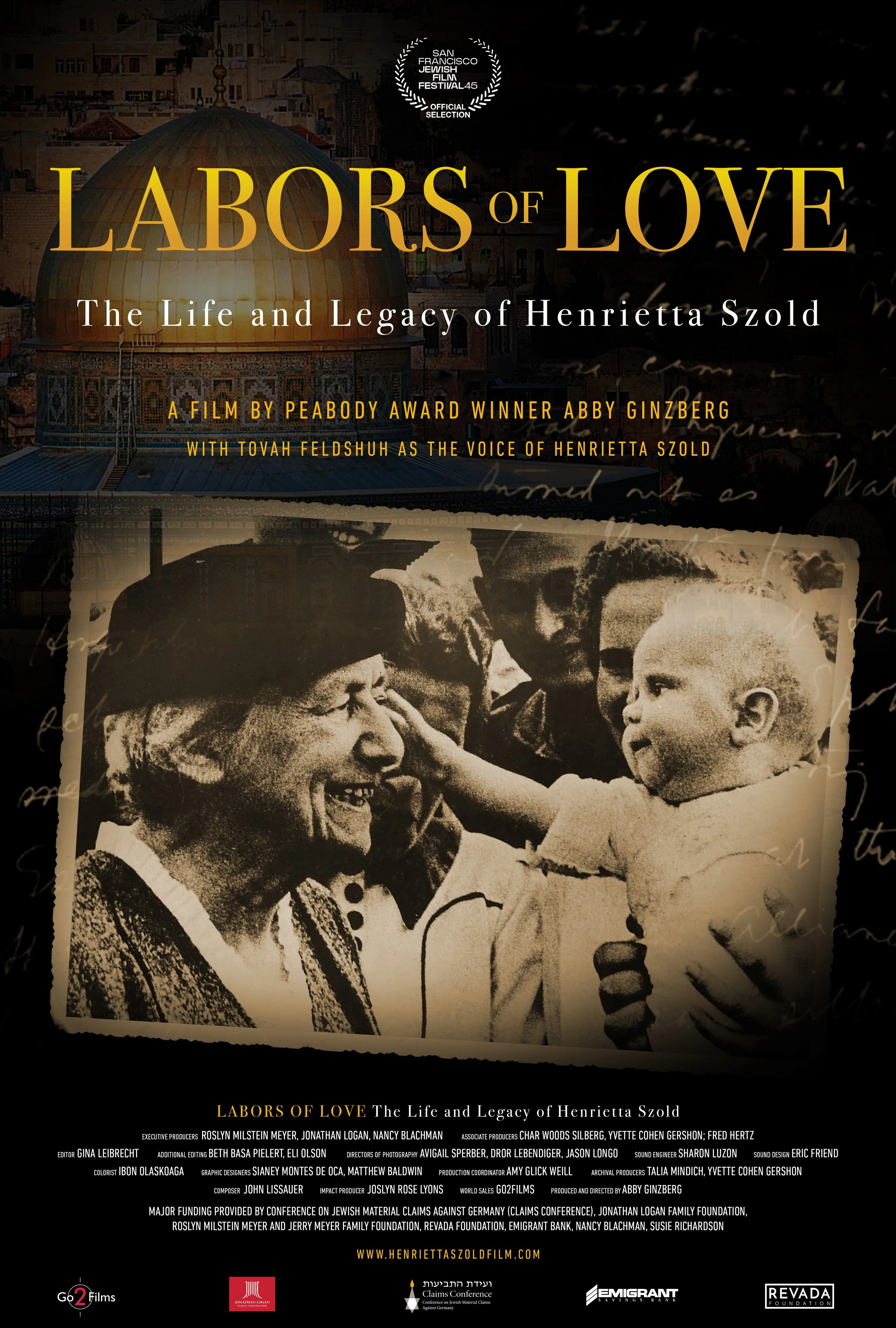Synopsis
Henrietta Szold is among the most influential American Jewish women who ever lived. She founded Hadassah in 1912, a Jewish women’s service organization, that inspired hundreds of thousands of Jewish women to invest their energies in a cause that transcended their own personal lives. She became a major force in the early twentieth century in Palestine: she established its health care system, treating Jews and Arabs equally, shaped its education system and initiated social services that prevail today. In a crowning achievement, Szold helped organize Youth Aliyah, which successfully rescued thousands of Jewish children from Germany and Nazi-occupied Europe during the 1930s and transported them to Palestine.
The oldest daughter of a Baltimore rabbi, Szold devoted her early adulthood to her father and his scholarly research. Unlike her four younger sisters, she didn’t go to college, marry or have children. However, her organizational skills were evident from an early age, when she founded the first night school for Russian immigrants devoting her time and energy to making sure they learned English. After her father’s death, she soon found herself devoting her life to another biblical scholar, Louis Ginzberg, thirteen years her junior (Szold was in her forties, Ginzberg his early thirties). She was his translator and editor, taught him English, accompanied him on long walks, traded heartfelt letters with him, and fell in love with him. When he announced his engagement to a 22-year-old German woman he had known for just weeks, Henrietta suffered a stunning, and very public, emotional collapse.
Remarkably, Henrietta Szold’s story has not yet been told on film, but it is a rich and fascinating story that has much to say to today’s audiences. Our coming documentary, Labors of Love: The Life and Legacy of Henrietta Szold will be a film that is a mix of biography, history and drama.
Much of Szold’s legacy is still visible in Israel today, particularly in the public health and social work fields. Her first visit to Palestine in 1909 led her to help create services for mothers and babies that today are reflected in current-day Tipat Halav clinics throughout Israel, which treat all babies, both Jewish and Arab. She worked hard to create a central agency which would provide social services for the entire country, underscoring the need for professional social workers, not volunteers. Today, young Ukrainian, Ethiopian and other Jewish refugees are benefiting from the infrastructure established by Youth Aliyah. This is apparent at Meir Shfeya, a youth village, supported by Hadassah since 1923.
In summary, Labors of Love: The Life and Legacy of Henrietta Szold is a much-needed film with a broad audience. The film will present a rich tapestry, interweaving several threads: of love and heartbreak and the transformation of a repressed Victorian into a political activist; of the vision, factionalism, great achievements and overwhelming contradictions that marked the seminal days of Zionism; and above all, of the triumph and limitations of a woman’s vision in a man’s world. It is a film that will unearth little-known or much-forgotten history; raise questions and stimulate debate around issues of feminism and Jewish identity; and explore the depths of one remarkable woman’s heart and soul.
